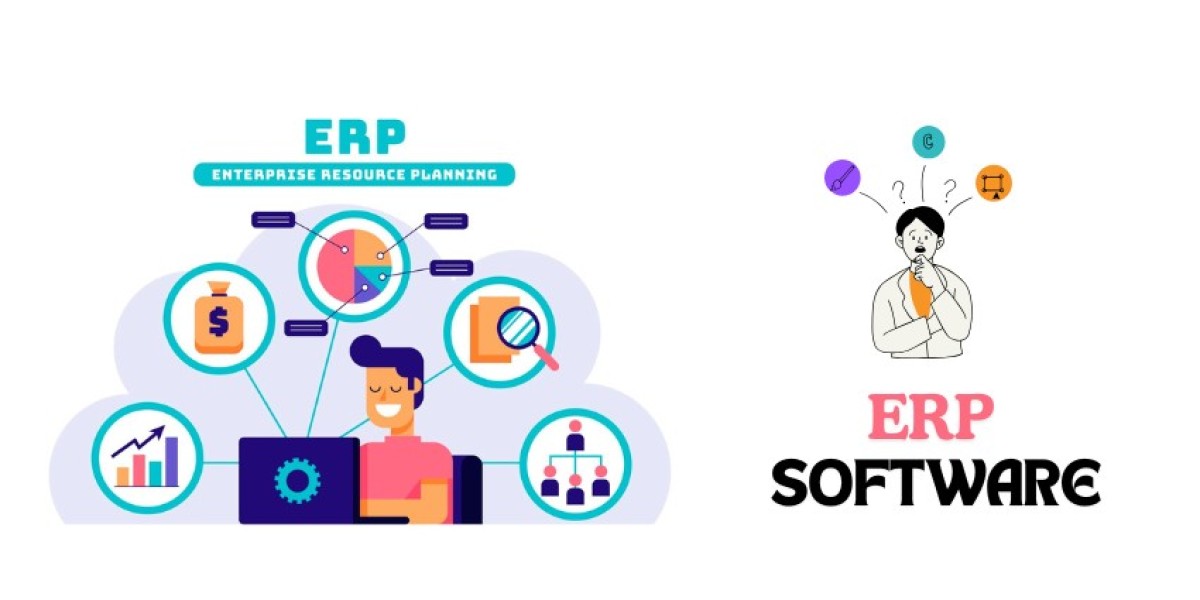In the world of enterprise management, software solutions have evolved into indispensable tools that streamline operations, enhance productivity, and enable data-driven decision-making. One such tool that has transformed business processes globally is SAP ERP (Enterprise Resource Planning). This blog delves into the essentials of SAP ERP, its capabilities, and how it supports businesses in achieving operational excellence. Additionally, we’ll explore the integration of modern technologies like Artificial Intelligence (AI) and Machine Learning (ML) into SAP ERP.
What is SAP ERP?
SAP ERP is an enterprise software developed by SAP SE to integrate core business functions into a unified platform. It covers areas such as finance, procurement, human resources, supply chain, and customer relations. This integration enables seamless communication and operational efficiency across departments, supporting businesses of all sizes.
Key Features of SAP ERP
- Centralized Data Management
Consolidates data across departments for improved collaboration and reduced redundancy. - Scalability
Adaptable for startups, SMEs, and large enterprises, SAP ERP evolves with growing business needs. - Real-Time Insights
Offers analytics to support timely and informed decision-making. - Customization
Industry-specific modules cater to diverse sectors like retail, manufacturing, and finance.
Benefits of SAP ERP for Businesses
1. Enhanced Productivity
SAP ERP automates repetitive tasks, reduces errors, and streamlines workflows, allowing teams to focus on strategic objectives.
2. Cost Efficiency
By optimizing resource allocation and minimizing redundancies, SAP ERP significantly lowers operational costs.
3. Data-Driven Decision-Making
Real-time insights empower businesses to forecast trends, plan budgets, and proactively resolve issues.
4. Scalability and Flexibility
SAP ERP’s modular structure allows businesses to expand functionality as they grow, ensuring long-term relevance.
Core Modules of SAP ERP
SAP ERP encompasses various modules tailored to meet specific business needs:
- Financial Accounting (FI) – Manages financial transactions and compliance.
- Materials Management (MM) – Enhances procurement and inventory management.
- Sales and Distribution (SD) – Streamlines customer management and sales processes.
- Human Resources (HR) – Automates payroll and tracks employee performance.
- Production Planning (PP) – Optimizes manufacturing schedules and resources.
- Customer Relationship Management (CRM) – Improves customer engagement and retention.
The Role of AI and ML in SAP ERP
Modern enterprises are leveraging AI and ML to amplify the capabilities of SAP ERP. These technologies add a layer of intelligence to data processing and decision-making, making ERP systems smarter and more predictive.
AI and ML Applications in SAP ERP
- Predictive Analytics: Helps in demand forecasting and inventory management.
- Chatbots: Automates customer interactions, improving service efficiency.
- Process Automation: Reduces manual intervention in repetitive tasks like invoice processing.
- Anomaly Detection: Identifies irregularities in financial or operational data, enhancing risk management.
By incorporating AI and ML into SAP ERP, businesses can unlock new opportunities for innovation and agility.
Guide for Development and Implementation of SAP ERP
Implementing SAP ERP is a multi-phase process that requires careful planning and execution. Here’s a step-by-step guide for development:
1. Needs Assessment
Identify the specific business requirements and challenges that SAP ERP will address.
2. Choosing the Right Partner
Collaborate with an experienced SAP implementation partner. Top Software Developers in Dubai offer expertise in customizing SAP ERP for local and international businesses.
3. System Design and Customization
Design the system architecture and customize modules to align with organizational goals.
4. Data Migration
Transfer existing data into the SAP ERP system while ensuring accuracy and completeness.
5. Testing and Quality Assurance
Conduct rigorous testing to validate the system’s functionality and resolve any issues.
6. Employee Training
Train employees to use the new system effectively, ensuring a smooth transition.
7. Go-Live and Support
Launch the system and provide ongoing technical support to address any post-implementation challenges.
SAP ERP for Diverse Industries
SAP ERP’s flexibility makes it a preferred choice across industries, including:
1. Manufacturing
Streamlines production planning, inventory management, and quality control.
2. Retail
Enhances supply chain visibility, customer engagement, and sales tracking.
3. Healthcare
Optimizes patient management, resource allocation, and regulatory compliance.
4. Finance
Supports risk management, regulatory reporting, and financial planning.
5. Real Estate
Facilitates project management, tenant tracking, and lease administration.
Why Dubai Businesses Prefer SAP ERP
Dubai, a global business hub, has witnessed widespread adoption of SAP ERP. The city’s diverse industries, ranging from finance and logistics to real estate and hospitality, rely on SAP ERP for its:
- Localized Customization: Adaptable to the unique needs of Middle Eastern markets.
- Regulatory Compliance: Ensures adherence to UAE-specific laws and regulations.
- Scalability: Supports startups and established enterprises alike.
Supporting Dubai’s Innovation Ecosystem
SAP ERP also aligns with Dubai’s vision of becoming a digital-first economy by integrating emerging technologies like AI, ML, and blockchain.
How Top Software Companies in Dubai Support SAP ERP
Dubai boasts some of the top software companies specializing in SAP ERP implementation and customization. These companies combine technical expertise with industry insights to deliver robust solutions.
Key contributions include:
- Offering end-to-end implementation services.
- Providing 24/7 support and system maintenance.
- Ensuring seamless integration with existing systems.
Cost Considerations for SAP ERP
The cost of implementing SAP ERP varies based on factors like company size, module selection, and customization needs. While SAP ERP is an investment, businesses can achieve a significant return by improving operational efficiency and reducing redundancies.
Tips to Optimize Cost
- Start Small: Implement essential modules first and expand gradually.
- Leverage Cloud Solutions: Cloud-based SAP ERP reduces upfront infrastructure costs.
- Partner with Experts: Collaborate with experienced vendors to avoid implementation errors.
Trends Shaping SAP ERP in 2025
- Cloud Adoption
Businesses are transitioning to cloud-based ERP for better scalability and cost efficiency. - IoT Integration
IoT devices will enhance real-time data collection and operational visibility. - AI-Driven Insights
Advanced analytics will uncover trends and new opportunities. - Focus on Sustainability
SAP ERP will incorporate tools to track and reduce environmental impact.
Conclusion
SAP ERP is a game-changer for businesses seeking to streamline operations, improve decision-making, and achieve sustainable growth. By leveraging the expertise of Top Software Developers in Dubai and integrating advanced technologies like AI and ML, companies can unlock the full potential of Customize Your ERP Software.
Whether you’re a startup or an established enterprise, embracing SAP ERP is a step toward future-proofing your business in an ever-evolving market.



